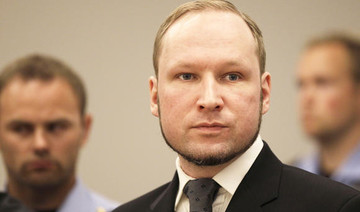LONDON: The UK’s home secretary on Monday pointed to Islamophobia for the first time as a motivation for far-right violence in several cities that has seen widespread damage and nearly 400 arrests.
Yvette Cooper was appearing on ITV’s morning television show “This Morning” and was asked why the Labour government had not used the term when talking about the violence, which broke out on Tuesday following a stabbing in which three children were killed.
“You’re right that there has been a range of different things driving this, including far-right extremism,” Cooper told the program.
“We have certainly seen some targeted attacks on mosques, and that clearly reflects Islamophobia, and people shouldn’t be targeted for their faith or for the color of their skin.
“We’ve also seen some looting, some response of local criminals just getting involved at the periphery on streets as well. None of these people speak for Britain,” she added.
Cooper’s department, the Home Office, said over the weekend it would deploy extra police and security for mosques under new emergency measures, The Telegraph reported.
A suspended Labour MP, Zarah Sultana, also appeared on “This Morning” and pushed the government to do more to call out hatred against Muslims.
“This question about naming it as Islamophobia is really important, because that allows us to shape our response,” she said.
“If we’re not identifying what is happening, the language that is being used and what this is about, we’re not going to be able to address this fundamentally,” she added.
Also on Monday, the head of Amnesty International UK said the government must get serious about tackling the “root cause of racism that plagues” British society.
“The widespread violence and hate crimes we’ve witnessed over the last few days are utterly unacceptable,” Sacha Deshmukh said.
“It’s disgusting to see hotels housing people seeking sanctuary set on fire, mosques and businesses attacked, and people targeted because of the color of their skin, their faith or their country of origin,” he added.
He said the violence was inspired by the rhetoric of politicians who had “scapegoated” refugees and migrants.
“Events of the last few days have been reported as ‘anti-immigration protests’ or ‘pro-British demonstrations’ and they should not be labeled as such. What we are seeing are clearly violent racist attacks targeting specific communities,” he said.
“Above all, the government must address the root causes of racism, Islamophobia and xenophobia that plagues our society — and this includes actively calling out and addressing the dangerous rhetoric of politicians and commentators on social media and elsewhere.”





























